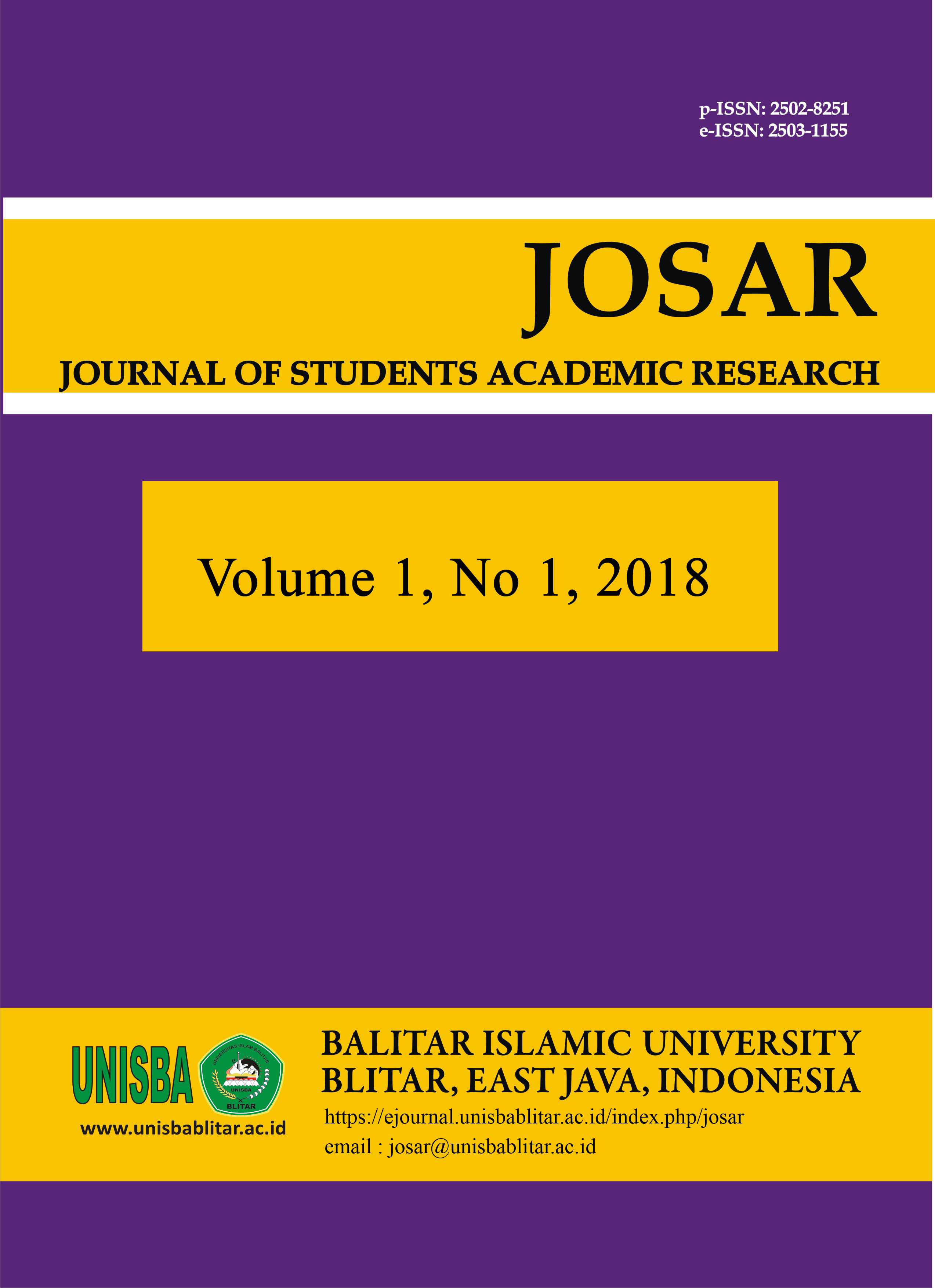PERCEPTION OF COMMUNITIES AROUND BETWEEN AGROWISM
Cas Study in Karangsari Village, Sukorejo Subdistrict, Blitar City
DOI:
https://doi.org/10.35457/josar.v1i01.622Keywords:
Perception, Society, VariablesAbstract
The purpose of this study was to determine the perceptions of the community on the presence of starfruit agro-tourism areas and perceptions of each starfruit agro-tourism variable. This research was conducted in Blitar City, which was located in Karangsari Sub-District, Sukorejo Sub-District, Blitar City in April 2018. Based on the results of the study, the community's response to starfruit agro-tourism with perceptions strongly agreed was 62.5% and those who agreed agreed 37.5% and those with a neutral perception , disagree and strongly disagree. Whereas the responses from each variable for the economic aspects that perceived strongly agree 45.5%, agree 48.25%, neutral 6.25% and those who perceive disagree and strongly disagree does not exist. For environmental aspects, the perception is strongly agree 49.75%, agree 41.75%, neutral 8.5% and those who perceive disagree and strongly disagree does not exist. For the security aspect, those who perceive strongly agree 52%, agree 43.5%, neutral 4.5% and those who perceive disagree and strongly disagree do not exist and for cultural aspects who perceive strongly agree 44.25%, agree 46.75% , neutral 9% and those who perceive disagree and strongly disagree does not exist.

Downloads
Published
Issue
Section
License
Authors who publish in this journal agree to the following terms:
- Authors retain copyright and grant the journal right of first publication with the work simultaneously licensed under a Creative Commons Attribution License that allows others to share the work with an acknowledgment of the work's authorship and initial publication in this journal.
- Authors are able to enter into separate, additional contractual arrangements for the non-exclusive distribution of the journal's published version of the work (e.g., post it to an institutional repository or publish it in a book), with an acknowledgment of its initial publication in this journal.
- Authors are permitted and encouraged to post their work online (e.g., in institutional repositories or on their website) prior to and during the submission process, as it can lead to productive exchanges, as well as earlier and greater citation of published work (See The Effect of Open Access).
Deprecated: json_decode(): Passing null to parameter #1 ($json) of type string is deprecated in /home/ejournal.unisbablitar.ac.id/public_html/plugins/generic/citations/CitationsPlugin.php on line 68









